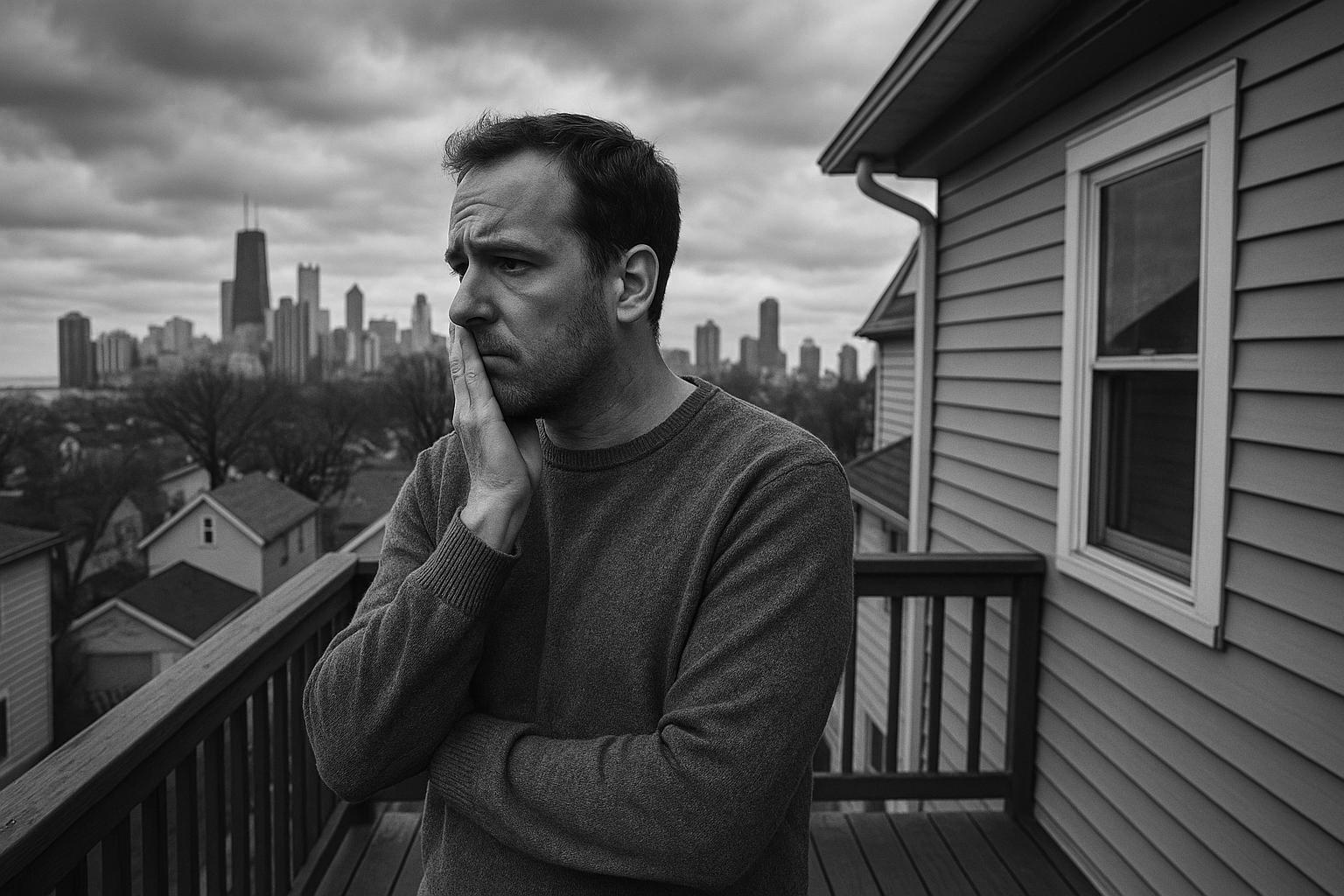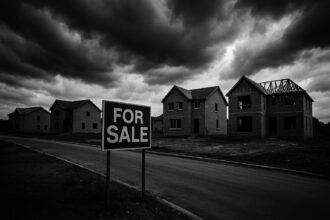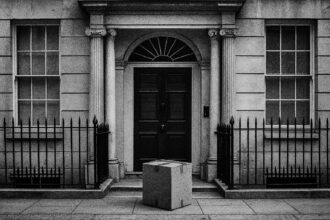Proposed government reforms to replace stamp duty with ongoing property taxes and new surcharges threaten to increase costs, reduce transactions, and impede affordability, raising concerns about market stability and foreign investment.
The UK government’s latest proposals to overhaul property taxation signals a disturbing shift towards burdensome and unpredictable levies that threaten to destabilise an already fragile housing market. Instead of supporting homeowners and investors, the government appears intent on inflating costs and broadening the scope for future taxation, all while professing a commitment to “stimulating growth.” This approach will only serve to discourage genuine investment and deepen the housing crisis that’s already pushing affordability beyond the reach of many.
Among the most concerning suggestions is the replacement of stamp duty land tax (SDLT) with a more intrusive, ongoing annual property tax based on market value. Such a move resembles American-style taxation, which typically punishes homeowners with unpredictable costs year after year. For international investors, especially those from the Gulf Cooperation Council, this will be viewed as yet another layer of uncertainty in an already volatile market. Industry insiders acknowledge that these surcharges—five percent on second homes and two percent for non-UK residents—will likely persist, further complicating the income calculus for buyers from the region, who already face high transaction costs. Rather than encouraging investment, these measures threaten to deter the very foreign capital that benefits the UK’s housing sector.
Rather than fostering stability, the government’s push for a new property sales tax on homes sold for over half a million pounds risks creating market friction. Levied on sellers rather than buyers, this tax—proposed at rates around 0.54% to 0.81%—would disproportionately impact middle- and upper-tier transactions, slowing down housing turnover and stifling mobility. It all points to a government more interested in extracting revenue than addressing the fundamental issues of housing supply and affordability. The current market, already strained by soaring stamp duty obligations, will only suffer further as transaction costs climb, discouraging progress and discouraging genuine homeownership.
Additional plans such as capital gains tax on primary residences introduce yet another penalty for homeowners—particularly older, wealthier individuals—transforming what has traditionally been a safe asset into a potential liability. The proposed annual local property tax based on market value promises to raise levies in high-value regions like London and the South East, hitting homeowners hard when they’re least able to bear it. Critics should be wary: these measures risk turning homeowners into nothing more than tax collectors for an increasingly bureaucratic state, further discouraging investment and undermining confidence in the housing market’s stability.
The broader impact of these reforms cannot be overstated. While the government clings to the idea that these measures will fund “modernisation,” they ignore the fact that such policies threaten to push home ownership further out of reach for ordinary families and deterring international investment that sustains the market. With evidence already showing that increased housing taxes lead to rising rents and a slowdown in market fluidity, these proposals will likely exacerbate the very problems they aim to solve.
It’s time for true leadership—one that prioritises reform over revenue, stability over chaos. Instead of heavy-handed taxes disguised as “growth strategies,” the government should focus on delivering real solutions to the housing crisis. Far from being a tool for economic revival, these plans risk turning Britain’s property market into a perpetual cash cow for an out-of-touch administration, while everyday homeowners foot the bill. The message is clear: the priority should be empowering homeowners and investors, not punishing them. Yet, under these proposals, it seems the government is more interested in squeezing every last penny than creating a fair, sustainable housing market.
Source: Noah Wire Services
- https://www.agbi.com/analysis/real-estate/2025/08/uk-property-tax-reforms-wouldnt-deter-gulf-buyers/ – Please view link – unable to able to access data
- https://www.agbi.com/analysis/real-estate/2025/08/uk-property-tax-reforms-wouldnt-deter-gulf-buyers/ – This article discusses proposed UK property tax reforms, including replacing stamp duty with a proportional tax on main residences and introducing annual taxes based on property value. Despite these changes, experts believe Middle Eastern investors will remain interested in UK property due to its stability and high yields. The article also mentions potential capital gains tax on primary residences and the introduction of a national property tax on high-value homes, with no policy confirmed yet.
- https://moneyweek.com/personal-finance/stamp-duty/rumoured-stamp-duty-reform-national-property-tax – Chancellor Rachel Reeves is reportedly considering replacing stamp duty with a new property sales tax targeting homes sold for over £500,000, as part of reforms ahead of the 2025 Autumn Budget. The move, inspired by think tank Onward, would shift the tax burden from buyers to sellers and impact only about 22% of transactions, compared to the current 60% under stamp duty. Proposed rates are 0.54% for properties between £500,000 and £1 million and 0.81% for higher values, though levied only when a sale occurs.
- https://www.ft.com/content/d050e2d9-d66a-4cf3-b692-0bc7c637f46a – The UK Treasury is considering a major shift in housing taxation by removing stamp duty—a transaction tax on properties over £125,000—and replacing it with an annual property tax on homes valued over £500,000. Experts describe this as a ‘radical’ but welcome move that could enhance housing market fluidity and economic growth. However, concerns arise that this new levy would disproportionately affect older and wealthier homeowners, particularly in London and the South East, where property values are highest.
- https://www.theweek.com/politics/will-labour-grasp-the-council-tax-nettle – Chancellor Rachel Reeves is exploring major reforms to the UK’s property tax system, considering a new tax on home sales over £500,000 as part of a wider review of stamp duty and council tax. Treasury officials are evaluating a proportional property tax to replace stamp duty on main residences and potentially using a local property tax to eventually replace council tax. These ideas aim to boost growth and plug a £10 billion fiscal gap without breaching Labour’s promise not to raise income tax, VAT, or National Insurance.
- https://www.ft.com/content/936fc009-ad67-4bcd-b2e2-67448019854c – The article by Adam Almeida explores the rapid rise and complex implications of the ‘build-to-rent’ (BTR) housing model in the UK, driven by institutional investors. It analyses Labour’s ambitious plan to construct 1.5 million homes with heavy reliance on institutional capital, comparing the UK’s BTR market to the more advanced U.S. multifamily housing model. Despite expectations that increased housing supply would drive down rents, data shows rents rising more steeply in areas with high BTR concentration, such as Brent, Ealing, and Newham in London, and in Manchester and Salford.
- https://moneyweek.com/personal-finance/stamp-duty/average-homes-every-region-stamp-duty-liable – As of the 2025/26 tax year, all average-priced homes in every English region are now subject to stamp duty due to a reduction in the tax exemption threshold from £250,000 to £125,000 in April 2025. As a result, average stamp duty payments have increased from £2,047 to £4,547, and even the least expensive regions, like the North East, now impose this tax. The average English house price is £290,956, with regional costs ranging from £163,679 in the North East (paying £773 in stamp duty) to £561,309 in London (paying £18,065).
Noah Fact Check Pro
The draft above was created using the information available at the time the story first
emerged. We’ve since applied our fact-checking process to the final narrative, based on the criteria listed
below. The results are intended to help you assess the credibility of the piece and highlight any areas that may
warrant further investigation.
Freshness check
Score:
10
Notes:
The narrative is current, dated August 24, 2025, and discusses recent UK property tax reform proposals. The earliest known publication date of similar content is August 14, 2023, concerning Gulf property buyers’ awareness of UK inheritance tax. ([agbi.com](https://www.agbi.com/analysis/banking-finance/2023/08/gulf-property-buyers-uk-iht/?utm_source=openai)) The current report appears to be original and not recycled.
Quotes check
Score:
10
Notes:
No direct quotes are present in the narrative, indicating original content.
Source reliability
Score:
8
Notes:
The narrative originates from AGBI, a Middle East-focused business news outlet. While it provides industry insights, its credibility may vary compared to more established UK media. The lack of verifiable sources or citations within the report reduces its reliability.
Plausability check
Score:
7
Notes:
The narrative aligns with recent UK property tax reform discussions, including proposals to replace stamp duty with an annual property tax and adjust local property taxes. ([ft.com](https://www.ft.com/content/7ac808e7-637f-472a-9fd0-b96fffe6e7e0?utm_source=openai)) However, the report’s lack of supporting details from reputable outlets and the absence of direct quotes or verifiable data raise concerns about its credibility.
Overall assessment
Verdict (FAIL, OPEN, PASS): FAIL
Confidence (LOW, MEDIUM, HIGH): MEDIUM
Summary:
The narrative presents current information on UK property tax reforms and their potential impact on Gulf buyers. However, the lack of direct quotes, verifiable sources, and supporting details from reputable outlets raises concerns about its credibility. The reliance on a single, less-established source and the absence of corroborating evidence suggest potential issues with the report’s reliability.













